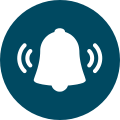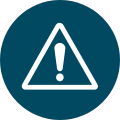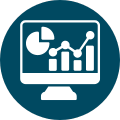
Our vision: A safe and healthy Kitsap County for all.
Nurse-Family Partnership
To report a notifiable condition or contact Kitsap Public Health District's Communicable Disease team, call 360-728-2235 or fax a completed fax form to our confidential fax line: 360-813-1168.
Disease Reporting Forms
Notifiable Conditions List
Anthrax (Bacillus anthracis, confirmed Bacillus cereus)
Report to:
Kitsap Public Health
Immediately (upon clinical suspicion)
Botulism (foodborne, infant, wound)
Report to:
Kitsap Public Health
Immediately (upon clinical suspicion)
Burkholderia Infection (Melioidosis or Glanders)
Report to:
Kitsap Public Health
Immediately (upon clinical suspicion)
Carbapenem-resistant Enterobacteriaceae (CRE)
and Organisms
Report to:
Kitsap Public Health
Within three business days
Disease Outbreaks (e.g., norovirus)
Report to:
Kitsap Public Health
Immediately (upon clinical suspicion)
Haemophilus influenzae (Invasive Disease children under five years of age)
Report to:
Kitsap Public Health
Immediately (upon clinical suspicion)
Human Immunodeficiency Virus (HIV) Infection
Report to:
Kitsap Public Health
Within three business days
Meliodosis (Burkholderia pseudomallei)
Report to:
Kitsap Public Health
Immediately (upon clinical suspicion)
Paralytic Shellfish Poisoning (PSP)
Report to:
Kitsap Public Health
Immediately (upon clinical suspicion)
Shiga Toxin-Producing E. coli (STEC)
Report to:
Kitsap Public Health
Immediately (upon clinical suspicion)
No result found. Please try a different search term or filter.
Healthcare Advisories
No result found. Please try a different search term or filter.
Focus Diseases & Topics
This list provides resources for diseases and health issues that Kitsap Public Health programs are working to address in our county. To learn more about our prevention work, view the topic pages and advisories linked below or call us at 360-728-2235.
Resources:
Kitsap Public Health can provide case management for patients with elevated blood lead levels. To learn more, visit our Blood Lead Level Case Management page or call 360-728-2229.
More resources:
Resources:
State Vaccination Programs:
Vaccine Recommendations:
Resources:
Nurse-Family Partnership provides a free nurse to visit clients during pregnancy and the first two years of their child's life. To learn more, visit our NFP page for healthcare providers or call 360-728-2229.
Resources:
Resources:
Overdose Prevention Hub | CDC
Prescription Monitoring Program | WA Dept. of Health
Pain & Opioid Provider Hotline | University of Washington
Resources:
Communicable Disease Data Dasbhoards

Data dashboards are not available on mobile devices. Please switch to a computer to view these dashboards.
Communicable disease data from Kitsap, Clallam, and Jefferson counties, compiled from CDC, WA DOH, and local sources.
More Health Data & Reports
Note: This page provides information for healthcare professionals. Community members can visit our main Nurse-Family Partnership page for general information.
Connect With Our Services
Think you have a patient who might benefit from Nurse Family Partnership? Provide the patient’s name, phone number, DOB, and EDD and we’ll follow up with information about eligibility, resources, and enrollment!
Call our Pregnancy and Parenting Support Line at 360-728-2229
Scan this QR code and submit the patient’s basic information yourself.
General Information
Nurse-Family Partnership (NFP) is an evidence-based, community health program with 45 years of research showing significant improvements in the health and lives of first-time moms and their children affected by social and economic inequality.
For families enrolled in the program, a specially trained nurse will visit throughout the pregnancy and until the baby turns two years old. During these visits, the nurse will offer the knowledge and support the family needs to confidently create a better life for their baby and themself.
NFP is entirely voluntary and free-of-charge to enrolled families.
Eligibility
To be eligible, patients usually must meet the following requirements. We recommend referring anyone you think would benefit. Even if they don’t qualify for NFP, we will gladly connect them to services and resources they are eligible for.
Pregnant with their first child
Gestational age is 28 or fewer weeks
Meets income requirements (we use Medicaid or WIC eligibility as guidelines)
Lives in Kitsap County
Experiences hardship in the form of mental health challenges, substance use disorder, housing instability, <18 years old, racial discrimination, intimate partner violence, developmental/intellectual disabilities, etc.
Suquamish Tribe partnership:
Through a partnership with the Suquamish tribe, we are excited to offer NFP services to anyone who is pregnant and would like NFP support. Priority will be given to Suquamish Tribal members, descendants, and family members. We are also able to serve any individual who identifies as native within Kitsap County, as well as non-native members of the Suquamish community.
Evidence Base & Local Data
Local outcome data
We regularly assess the impact of our program by using standardized tools (PHQ-9, GAD-7) to assess our clients’ mental health, substance use, and caretaking/parenting behaviors throughout the vulnerable prenatal, postpartum, and early parenting stages. From January 2020 – December 2024, 58 Kitsap NFP graduates’ charts were analyzed for changes in knowledge, behavior, and status in the three identified domains (mental health, substance use, and caretaking/parenting).
For NFP clients with an identified mental health problem (58 clients), 100% had an improvement in either their knowledge, behavior, or status rating.
For NFP clients with an identified substance use problem (42 clients), 86% (36 out of 42 clients) had an improvement in either their knowledge, behavior, or status rating.
For NFP clients with an identified caretaking/parenting problem (54 clients), 98% (53 out of 54) had an improvement in either their knowledge, behavior, or status rating.
National data













.png)
